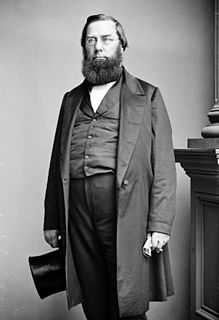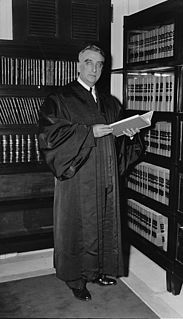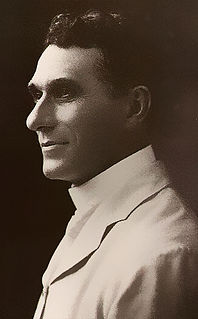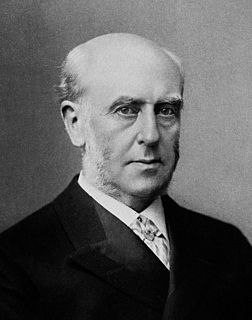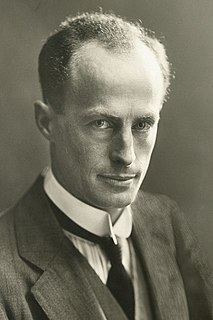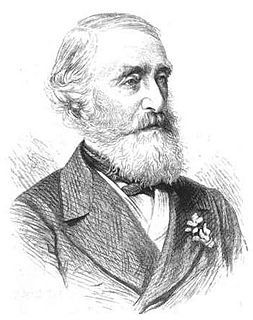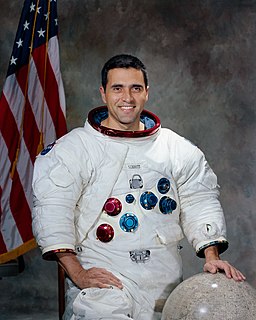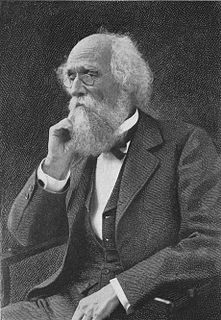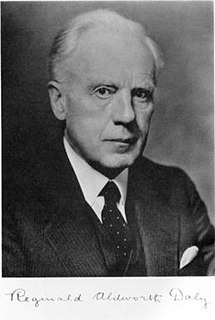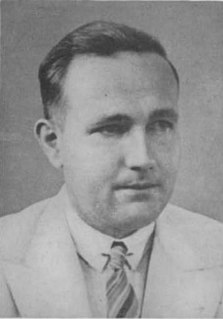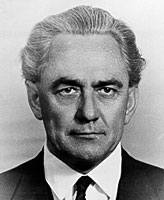A Quote by James Dwight Dana
There can be no real conflict between the two Books of the Great Author. Both are revelations made by Him to man,-the earlier telling of God-made harmonies coming up from the deep past, and rising to their height when man appeared, the later teaching man's relations to his Maker, and speaking of loftier harmonies in the eternal future.
Related Quotes
By His gracious condescension God became man and is called man for the sake of man and by exchanging His condition for ours revealed the power that elevates man to God through his love for God and brings God down to man because of His love for man. By this blessed inversion, man is made God by divinization and God is made man by hominization. For the Word of God and God wills always and in all things to accomplish the mystery of His embodiment.
Apart from the hostile influence of man, the organic and the inorganic world are ... bound together by such mutual relations and adaptations s secure, if not the absolute permanence and equilibrium of both ... at least a very slow and gradual succession of changes in those conditions. But man is everywhere a disturbing agent. Wherever he plants his foot, the harmonies of nature are turned to discords.
We have the right to rid our houses of ants; but what we have no right to do is to forget to honor the ant as God made it, out in the place where God made the ant to be. When we meet the ant on the sidewalk, we step over him. He is a creature, like ourselves; not made in the image of God, it is true, but equal with man as far as creation is concerned. The ant and the man are both creatures.
The thing that was forfeited in the garden was regained. God gave him [Adam] dominion over the works of His hand. God made him His understudy, His king to rule over everything that had life. Man was master, man lived in the realm of god. He lived on terms of equality with God. God was a faith God. All God had to do was to believe that the sun was, and the sun was. All God had to do was to believe that the planets would be, and they were. Man belonged to God's class of being - a faith man, And he lived in the creative realm of God
In China there was once a man who liked pictures of dragons, and his clothing and furnishings were all designed accordingly. His deep affection for dragons was brought to the attention of the dragon god, and onde day a real dragon appeared before his window. It is said that he died of fright. He was probably a man who always spoke big words but acted differently when facing the real thing.
[A]s a commencement the Lord appeared unto Joseph Smith, both the Father and the Son, the Father pointing to the Son said, "this is my beloved Son in whom I am well pleased, hear ye him" Here then, was a communication from the heavens made known unto man on the earth, and he at that time came into possession of a fact that no man knew in the world but he, and that is that God lived, for he had seen him, and that his Son Jesus Christ lived, for he also had seen him.
There are only two kinds of men in this world: Honest men and dishonest men. ...Any man who says the world owes him a living is dishonest. The same God that made you and me made this earth. And He planned it so that it would yield every single thing that the people on it need. But He was careful to plan it so that it would only yield up its wealth in exchange for the labor of man. Any man who tries to share in that wealth without contributing the work of his brain or his hands is dishonest.
As to the Christian system of faith, it appears to me as a species of Atheism — a sort of religious denial of God. It professes to believe in a man rather than in God. It is a compound made up chiefly of Manism with but little Deism, and is as near to Atheism as twilight is to darkness. It introduces between man and his Maker an opaque body, which it calls a Redeemer, as the moon introduces her opaque self between the earth and the sun, and it produces by this means a religious, or an irreligious, eclipse of light. It has put the whole orbit of reason into shade.




